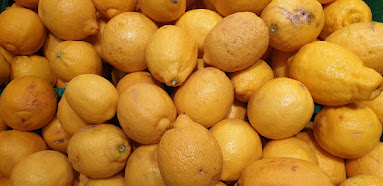The January cold snap has had a severe effect on lemon trees, according to the agricultural group Asaja. It estimated that it had an impact on about 70,000 tonnes of lemons in the region of Alicante. They therefore request that “lemon prices for farmers should rise.”
According to José Vicente Andreu, president of ASAJA Alicante, frost damage has been reported on 33% of insured lemons, “a figure that has not been reported for a long time due to this cause.” Additionally, he remembers that it arrives at a challenging time because by the end of December, over 600,000 tonnes of fino and all verna kinds were still available.
They demand in a statement that the lemon industry association be transparent about how it disseminates information and provide accurate data: “The damage caused by frost is significant, so the sector as a whole must be aware of this data so that there is a serious and proportional relationship in the market and the work of the farmer in the field is respected.”
And for what reason do they request it? They contend that the farmer is the only one who suffers if current information on frost damage and actual commercial lemon stocks is not supplied in a timely manner. One in three policies with lemon and frost coverage have reported this incidence, which happened on January 15th, according to statistics from Asaja.
Between January 10th and 15th, several communities in the Bajo Segura region experienced extreme cold, with temperatures below zero degrees. Extremely cold temperatures reached -4 degrees in the large municipal area of Orihuela, including Dehesa de Pinohermoso, Arneva, Hurchillo, La Murada, and Desamparados; comparable readings were also noted in the towns of Bigastro, Jacarilla, Benejúzar, Almoradí, Daya Nueva, Daya Vieja, Albatera, Benferri, and San Isidro, among others.
The union emphasises that the citrus fruit, which was on the tree and ready to be harvested, suffered significant dehydration damage as a result of these harsh circumstances. Since it cannot be sold, the farmer is now responsible for absorbing additional losses on top of those incurred in 2024, when a crisis of unparalleled proportions led to many farmers failing to insure their harvests.
The Asaja statement ends by highlighting another factor that they believe is making matters worse: a decline in Turkish lemon imports into Europe in recent years. The recent frosts that have struck that nation’s producing regions will make this truth even more apparent. Argentina, where the tendency of uprooting lemon trees to cultivate other commodities like soybeans and sugar is solidifying, will also see a decline in production in the southern hemisphere.









No Comment! Be the first one.